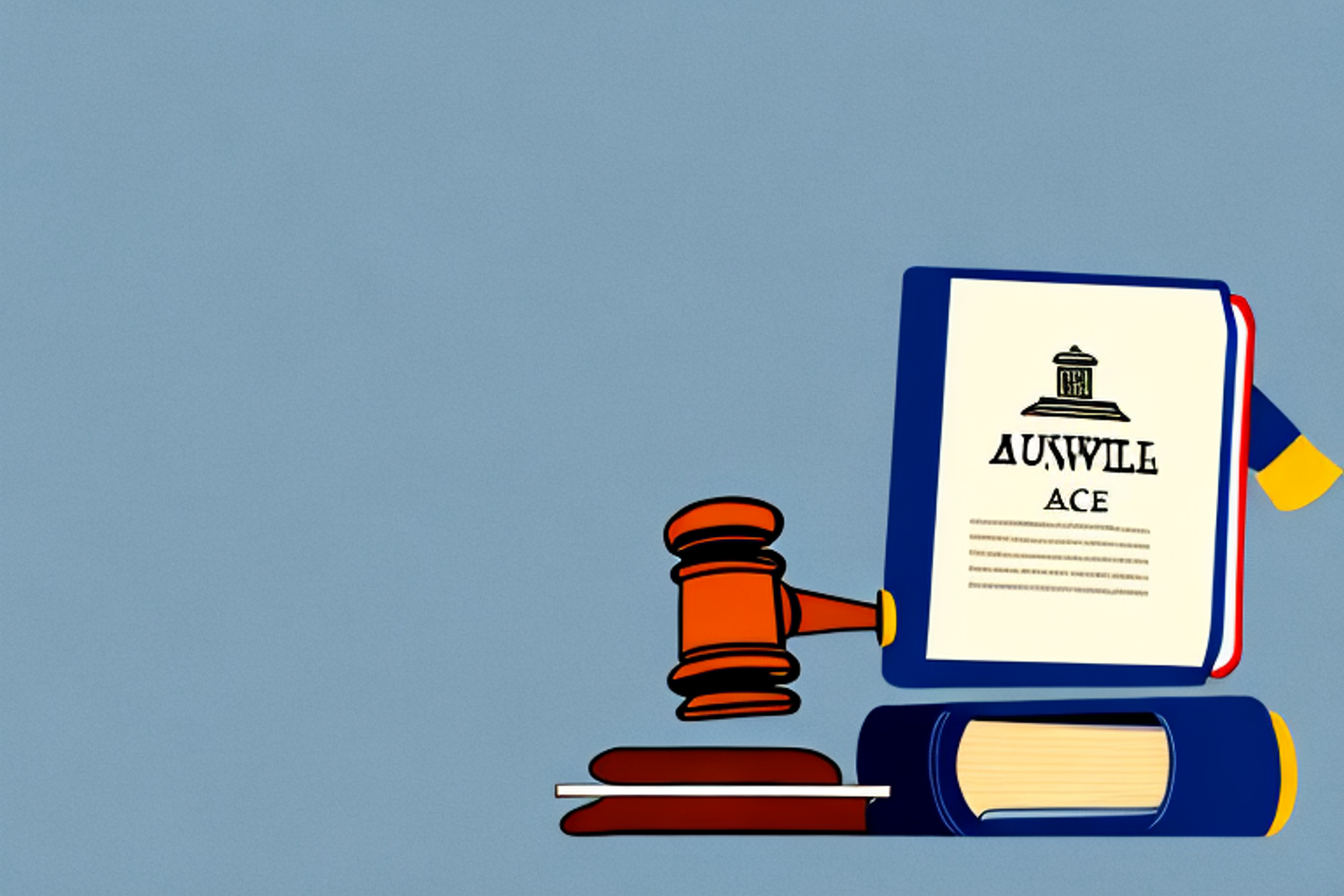Northwestern Law Personal Statement — Overview & Analysis (2025)
Learn how to write a compelling personal statement that will make your application stand out for Northwestern University Pritzker School of Law.
Posted March 6, 2025

Table of Contents
Free Event

Featuring Indrani S.
Law School App Office Hours with a Former Stanford AdCom Member
Starting Thursday, April 17
11:30 PM UTC · 45 minutes

Featuring Indrani S.
A strong personal statement is essential for applicants targeting Northwestern University Pritzker School of Law. As one of the most competitive law schools, Northwestern requires applicants to showcase their unique qualifications and alignment with the school’s values. This guide provides a tactical approach to writing an effective personal statement, helping prospective law students stand out from other applicants.
Read: How to Write a Powerful Personal Statement for Your Law School Applications
Why the Personal Statement Matters in Pritzker Law School Admissions
The personal statement is a crucial component of law school applications, offering the admissions committee insight into an applicant’s experiences, skills, and goals. Unlike a resume, which highlights grades and accomplishments, the personal statement serves as a narrative essay, enabling applicants to demonstrate their fit for a law degree at Northwestern.
Admissions committees at law schools like Northwestern Pritzker School of Law use personal statements to identify candidates who bring intellectual curiosity, leadership roles, and a commitment to diversity. The document also helps address any gaps in an applicant’s resume or academic history, such as LSAT scores or challenges faced during their educational journey.
Key Elements of a Northwestern Pritzker Personal Statement
Crafting a compelling personal statement for Northwestern requires strategic planning. Successful applicants often:
- Tailor the Statement to Northwestern - Researching the school is critical. Applicants should reference specific courses, programs, or professors that align with their interests. Highlighting the school's location in Chicago and its focus on interdisciplinary innovation, such as joint degree programs, demonstrates a strong understanding of what Northwestern offers.
- Showcase Relevant Experiences -Admissions committees value statements that emphasize relevant experiences, such as extracurricular activities, internships, or community service. These examples illustrate an applicant’s potential to contribute to the Northwestern community and their readiness to pursue a law degree.
- Demonstrating Resilience and Diversity - Northwestern’s emphasis on diversity encourages applicants to discuss how their background or challenges have shaped their perspective. Experiences with individuals from different backgrounds or advocacy for underrepresented groups are particularly impactful.
Read: Crafting a Winning Diversity Statement for Law School: Essential Tips - Focusing on Career Goals - A personal statement should connect past experiences to future ambitions. Applicants can discuss their commitment to social justice or aspirations to impact fields such as business law or public service.

How to Structure the Personal Statement for Impact
A well-structured personal statement is essential for capturing the admissions committee's attention and effectively communicating your story. Top law schools like Northwestern Pritzker School of Law value personal statements that balance compelling storytelling with analytical depth, showcasing your unique experiences and motivations. Below is a detailed guide to structuring your personal statement for maximum impact:
Introduction
The introduction sets the tone for your entire personal statement and serves as your chance to hook the reader. A strong introduction should:
- Start with a compelling story or unique idea - Begin with an anecdote, personal experience, or thought-provoking statement that immediately captures interest. For example, you could recount a moment that sparked your passion for law or highlight an experience that demonstrates your values.
- Highlight a central theme - Use the introduction to introduce the core idea or theme that will thread through the rest of your statement. This could relate to a specific interest in law, your motivation for attending law school, or a personal quality like resilience or leadership.
Example: "The first time I stepped into a courtroom, I was a high school intern shadowing a public defender. The energy, the arguments, and the stakes were palpable, and I knew then that I wanted to pursue a career where I could use the law to advocate for others."
Body
The body of your personal statement is where you develop your story and connect your experiences, skills, and aspirations to law school and your future goals. Break this section into clear, logical paragraphs that flow naturally. Here’s how to approach it:
- Tie personal experiences to law school readiness - Share specific, relevant experiences—such as internships, leadership roles, extracurricular activities, or academic achievements—that have prepared you for law school. Be detailed and avoid generic statements.
- Demonstrate qualities the admissions committee values - Highlight traits like leadership, resilience, intellectual curiosity, and a commitment to social justice. Use concrete examples to illustrate these qualities rather than stating them outright.
- Connect your experiences to your goals - Show how your past experiences have shaped your desire to earn a law degree and pursue a career in the legal field. Mention how these experiences have prepared you to succeed at Northwestern Pritzker School of Law specifically.
Example: "During my time volunteering with a legal aid organization, I encountered clients from diverse backgrounds struggling to navigate the complexities of housing laws. This experience not only solidified my interest in social justice but also honed my ability to analyze intricate legal issues—a skill I am eager to develop further through Northwestern's interdisciplinary programs."
Conclusion
The conclusion is your opportunity to reinforce your enthusiasm for Northwestern Pritzker School of Law and leave a strong final impression. Aim to:
- Summarize key points - Reiterate the experiences, qualities, and motivations you’ve discussed, tying them together into a cohesive narrative.
- Express genuine enthusiasm for Northwestern - Highlight why Northwestern’s programs, faculty, or values resonate with you and how they align with your career aspirations. Mention specific aspects of the school, such as its location, interdisciplinary approach, or commitment to diversity.
- End with impact - Close with a powerful statement that reflects your determination and excitement about contributing to Northwestern’s community and achieving your legal career goals.
Example: "Northwestern’s emphasis on interdisciplinary collaboration and its dedication to fostering a diverse, inclusive community align perfectly with my aspirations. I am eager to bring my experiences, passion, and perspective to the Pritzker School of Law as I work toward a career dedicated to advocacy and justice."
Common Mistakes to Avoid
To craft a standout personal statement, avoid these common mistakes that can weaken your application:
- Using generic language and vague phrases that fail to capture your unique experiences and motivations
- Failing to address gaps in your resume or academic record while missing the opportunity to highlight growth and resilience
- Neglecting to connect your story to Northwestern's values or demonstrate your alignment with the school’s mission
- Overemphasizing weaknesses in your application instead of focusing on your strengths and potential
- Relying on cliches or overused narratives that fail to differentiate your personal statement from others
- Writing a disorganized statement that lacks a clear introduction, body, and conclusion
- Submitting a statement with spelling, grammar, or formatting errors without proper proofreading

The Role of Research in Writing a Personal Statement
Conducting thorough research is a critical step in crafting an effective personal statement for Northwestern Pritzker School of Law. This research allows applicants to align their narrative with the school’s unique values and priorities, demonstrating genuine interest and commitment. Northwestern places a strong emphasis on academic excellence, intellectual curiosity, and collaboration. By understanding these qualities, applicants can tailor their statements to reflect how they embody these attributes.
Delving into specific programs, faculty expertise, and interdisciplinary opportunities at Northwestern can provide valuable insights to strengthen the statement. For instance, referencing joint degree programs, such as those offered by the Kellogg School of Management or Medill School of Journalism, can highlight an applicant’s interest in the school’s interdisciplinary approach. Exploring alumni achievements and their impact on the legal field can also inspire applicants to connect their own aspirations to Northwestern’s legacy.
Additionally, engaging with resources like the school’s website, virtual information sessions, or conversations with current students and alumni can provide a deeper understanding of the Northwestern experience. This level of detail demonstrates effort and enthusiasm, setting a personal statement apart by showing that the applicant has done more than surface-level research. Integrating this understanding into the narrative allows applicants to effectively communicate why Northwestern is their ideal choice and how they align with the school’s mission and community.
Examples of Relevant Topics for Northwestern Applicants
Overcoming challenges, career aspirations, and community engagement are powerful themes that can create a compelling personal statement for Northwestern Pritzker School of Law. Here are some concrete examples to illustrate how applicants might approach these topics:
Overcoming Challenges
An applicant might discuss their experience growing up in a low-income household and how this shaped their perspective on socioeconomic disparities. They could highlight how these challenges inspired a commitment to advocating for marginalized communities through legal reform. For example, detailing how they navigated systemic barriers to excel academically and secure an internship with a legal aid organization demonstrates resilience and aligns with Northwestern’s emphasis on social justice.
Career Aspirations
Applicants with a passion for corporate law might describe their experience working in a business environment, such as an internship in a company’s compliance department, where they observed the intersection of legal frameworks and corporate governance. They could then connect this experience to Northwestern’s interdisciplinary programs, such as those offered through the Kellogg School of Management, emphasizing how these programs align with their goal to advise corporations on ethical practices.
Community Engagement
An applicant committed to diversity and inclusion might discuss their involvement in a student organization that promotes dialogue between individuals from different backgrounds. For instance, they could highlight organizing a campus-wide event that brought together students from various cultural groups to address systemic inequality. Linking this experience to Northwestern’s initiatives for fostering an inclusive environment underscores their fit with the school’s values.
Editing and Polishing for a Competitive Edge
Thorough revision is essential to refine a personal statement into a compelling and polished piece. Start by reviewing the draft for clarity, coherence, and alignment with Northwestern Pritzker School of Law’s values. Ensure every section supports the narrative, ties experiences to the school’s mission, and demonstrates why you are a strong fit. Reading the statement aloud can help identify awkward phrasing and ensure smooth transitions between ideas.
Seeking feedback from trusted mentors, professors, or current students can provide fresh perspectives on areas for improvement. Proofread carefully to eliminate spelling, grammar, or formatting errors, as these can detract from professionalism. A concise, well-edited statement not only enhances readability but also underscores your readiness to thrive in Northwestern’s rigorous academic environment, leaving a strong impression on the admissions committee.
The Value of Top Law School Admissions Coaches
Top law school admissions coaches play an invaluable role in helping applicants navigate the highly competitive admissions process. With their deep expertise in crafting compelling personal statements, preparing for interviews, and positioning an application to stand out, these coaches provide tailored guidance that can make a significant difference. Their insights into what admissions committees value—such as clarity, authenticity, and alignment with a school’s mission—help applicants present their best selves.
By working with a skilled coach, applicants can refine their narrative, address weaknesses effectively, and highlight strengths in a way that resonates with top law schools. For those aiming for institutions like Northwestern Pritzker School of Law, the support of an admissions coach can transform a good application into an exceptional one, maximizing the chances of success in achieving their law school goals.
Read next:
- How to Write a Compelling Personal Statement for University of Chicago Law School
- How to Write a Compelling Personal Statement for University of Pennsylvania Carey Law School
- How to Write a Compelling Personal Statement for Duke University School of Law
- How to Write a Compelling Personal Statement for Georgetown University Law Center
- How to Write a Compelling Personal Statement for University of Southern California Gould School of Law
FAQs
How long should my personal statement be?
- Most law schools suggest a personal statement length of 2–4 pages, double-spaced. It's important to adhere to each school's specific guidelines, as exceeding the recommended length can reflect poorly on your ability to follow instructions.
Is it acceptable to use my personal statement to explain a low GPA or LSAT score?
- Generally, it's advisable to address weaknesses like a low GPA or LSAT score in a separate addendum rather than in your personal statement. The personal statement should focus on your strengths and unique experiences, while an addendum can provide context for any academic shortcomings.
Can I use the same personal statement for multiple law school applications?
- While you can use a core personal statement for multiple applications, it's crucial to tailor each one to the specific law school. Mentioning particular programs, faculty, or aspects of the school's culture demonstrates genuine interest and fit. Be careful to reference the correct school in each version to avoid careless errors.
Should I discuss why I want to attend law school in my personal statement?
- Not necessarily. Some law schools prefer a personal narrative that reveals who you are beyond your academic achievements, while others may appreciate insight into your motivation for pursuing a legal career. It's essential to understand each school's preferences by reviewing their application instructions carefully.
Is it appropriate to include humor in my personal statement?
- While injecting personality into your personal statement is beneficial, humor can be subjective and may not resonate with all readers. If you choose to include humor, ensure it is tasteful and does not undermine the professionalism of your application. When in doubt, err on the side of caution.
How personal should my personal statement be?
Your personal statement should offer insight into your character, experiences, and motivations. However, it's important to maintain professionalism and relevance. Share personal anecdotes that illustrate your qualifications and suitability for law school, but avoid overly intimate details that do not serve this purpose.










